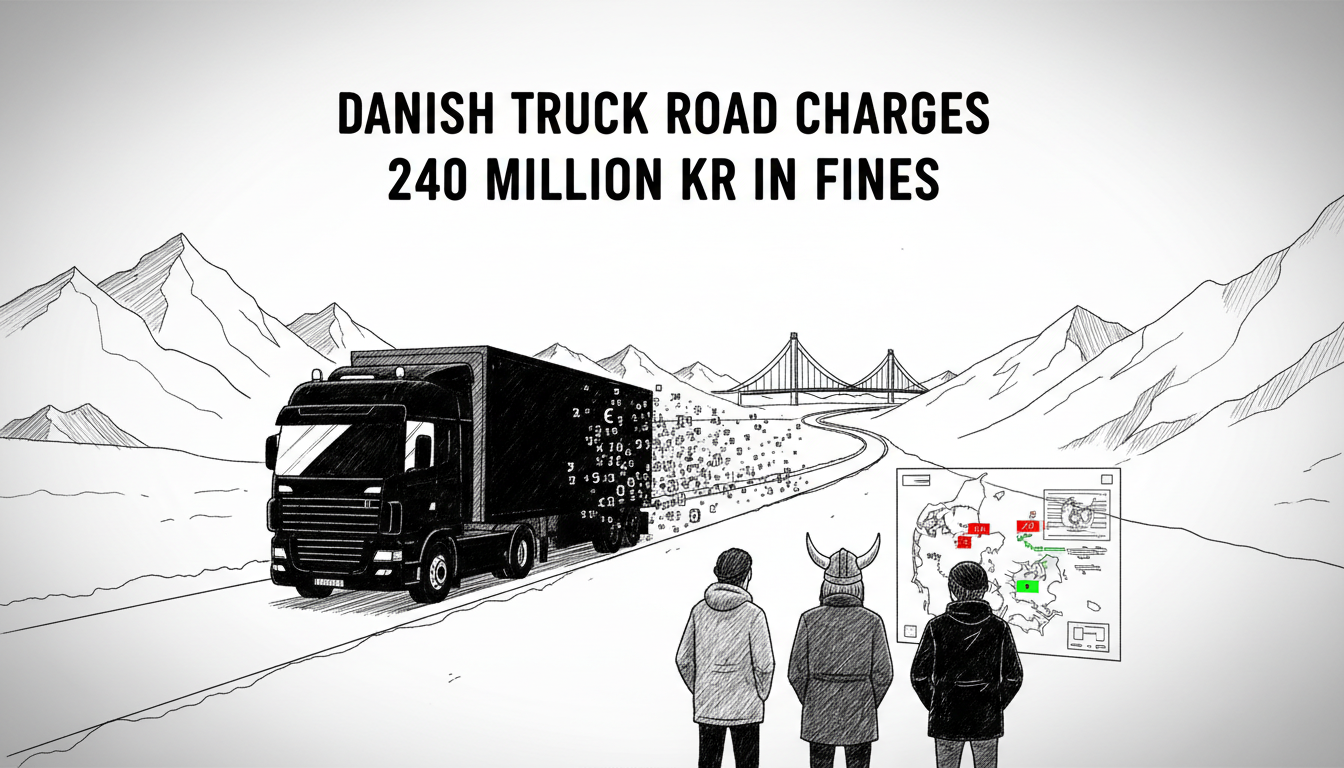Danish authorities have launched the first legal cases against trucking companies for unpaid road charges. These initial court proceedings will take place at Aalborg City Court in late November. The cases represent a major enforcement action following the controversial implementation of road pricing for heavy vehicles.
The truck road charge system took effect in early January despite strong protests from the transport industry. The policy applies to trucks weighing 12 tons or more. Government plans call for expanding the charge to lighter trucks starting in 2027.
Currently, truck operators pay for using approximately 10,900 kilometers of state and municipal roads. The system is scheduled to expand to cover Denmark's entire 75,000-kilometer public road network by 2028.
The kilometer-based charge varies depending on each truck's CO2 emissions class, weight, and environmental zone. Authorities designed the system to encourage greener transportation choices. The charges also aim to recover society's costs for road wear, accidents, noise, and air pollution.
Both Danish and foreign trucks must comply with the payment requirements. Drivers can pay through an onboard toll box device or by purchasing digital road charge tickets.
Enforcement relies heavily on automated license plate readers. Authorities installed new fixed scanners at traffic hubs nationwide. Mobile control units provide additional monitoring at selected locations.
Non-compliance carries stiff penalties. Each violation results in a 9,000 kroner fine. During the first nine months of enforcement, officials issued 40,916 penalties totaling over 240 million kroner.
The substantial fine volume indicates both widespread non-compliance and rigorous enforcement. Many trucking companies appear to be testing the system's limits or struggling with the new payment requirements.
This road charge system represents Denmark's latest step toward environmental transportation policies. Similar systems exist in other European countries like Germany and Switzerland. The Danish approach stands out for its planned expansion to lighter vehicles and comprehensive road coverage.
International trucking companies operating in Denmark must adapt quickly to avoid penalties. The system creates additional administrative burden and cost calculations for cross-border transport operations.
The court cases in Aalborg will set important precedents for future enforcement. Their outcomes could influence how aggressively authorities pursue non-payers and what defenses trucking companies might raise.
Danish transport industry groups continue to voice concerns about the charges' economic impact. They argue the costs will ultimately reach consumers through higher prices for transported goods. The government maintains the system fairly distributes infrastructure and environmental costs.
As expansion plans proceed, more trucking companies will face these charges. The system's full implementation by 2028 will affect virtually all commercial truck operations in Denmark.

